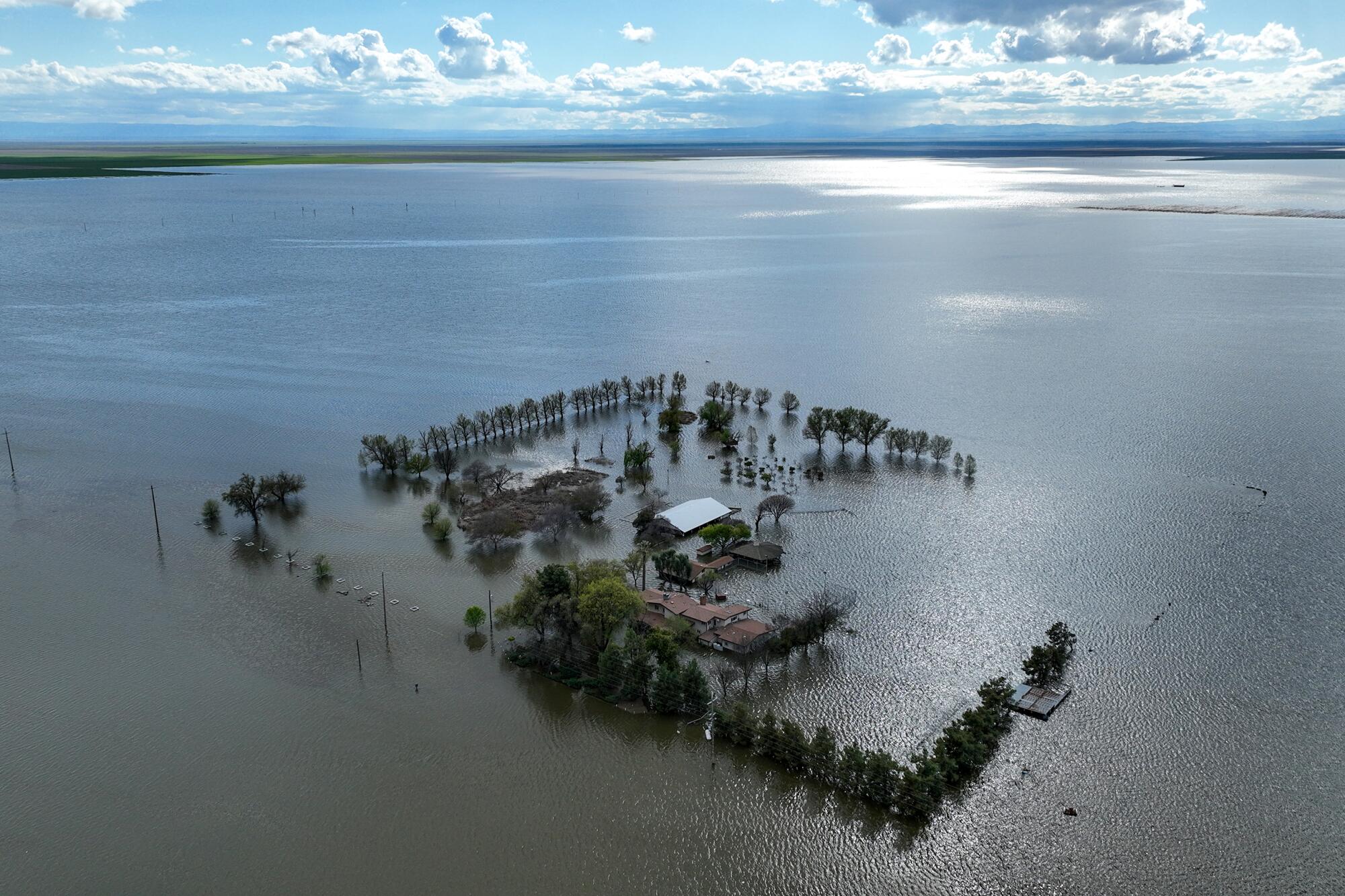Littoral Rights Real Estate: Unleash the Power of Exclusive Waterfront Ownership
Littoral rights refer to the rights of landowners to use and enjoy the water and land adjacent to a body of water, such as an ocean or lake. These rights typically include access to the water, the ability to build and maintain structures along the shore, and the ownership of any natural resources found in the water or on the land.
Understanding and respecting littoral rights is crucial when buying or selling waterfront real estate properties. Whether you are a homeowner or a developer, it is important to be aware of these rights to avoid any legal disputes or limitations on your use of the property.
By understanding the various aspects of littoral rights real estate, you can make informed decisions and ensure a smooth and successful transaction.

Credit: www.wired.com
What Are Littoral Rights?
Living by the water can evoke a sense of calm and tranquility, but it also comes with certain legal considerations. If you own waterfront property or are looking to buy, it’s vital to understand the concept of littoral rights. These rights pertain to properties located on the shores of bodies of water such as oceans, seas, lakes, or even rivers. Littoral rights differ from riparian rights, which apply to properties situated along rivers and streams.
Definition Of Littoral Rights
Littoral rights can be defined as the legal rights and privileges that accompany ownership of land bordering a body of water. These rights generally encompass the use and enjoyment of the adjacent water body, as well as limited ownership of the submerged land beneath the water up to the ordinary high-water mark. The ordinary high-water mark refers to the average level reached by the water over a considerable period, excluding abnormal tides and floods.
Legal Rights Of Waterfront Property Owners
As a waterfront property owner, you may enjoy certain exclusive rights and privileges. These can vary depending on both state and federal laws. Generally, littoral rights grant you:
- The right to access and use the water for recreational activities such as swimming, boating, and fishing.
- The right to install piers, docks, and mooring facilities, subject to local regulations and permits.
- The right to prevent others from obstructing your access to the water or impeding your use and enjoyment of the shoreline.
- The right to the accretion or gradual addition of land due to natural processes like sediment deposition, although laws regarding accretion can vary.
- The right to the exclusive use and control of the land up to the ordinary high-water mark, including any structures or improvements on it.
It’s important to note that although littoral rights generally grant exclusive use of the below-water portion up to the high-water mark, this does not imply ownership of the water itself. The water within the littoral zone remains part of the public trust and is subject to various regulations and environmental protections.
Understanding littoral rights is essential for both current and potential waterfront property owners. It provides clarity on the privileges and responsibilities associated with owning land adjacent to bodies of water, ensuring you can fully enjoy and protect your investment.
Understanding Littoral Rights Real Estate
When it comes to real estate, not all properties are created equal. One type of property that holds significant value and appeal is littoral rights real estate. If you are seeking to own a piece of waterfront property, it is crucial to understand the ins and outs of littoral rights. By doing so, you can make informed decisions and maximize the benefits of owning such property.
Importance Of Owning Waterfront Property
Owning waterfront property holds a special allure for many aspiring homeowners. There is an undeniable charm in waking up to the sounds of gentle waves and enjoying breathtaking views of the water right from your own backyard. Beyond the aesthetic appeal, waterfront property offers a range of unique benefits that make it highly desirable in the real estate market.
Benefits Of Littoral Rights Real Estate
When it comes to waterfront property, littoral rights play a crucial role in determining ownership and usage rights. Littoral rights refer to the legal rights that a property owner has in relation to a body of water, such as a lake, river, or ocean. These rights grant the owner certain privileges and responsibilities, which can greatly enhance the value and enjoyment of the property.
One of the key benefits of littoral rights real estate is the control and access it provides. As the owner, you have the right to access and use the water adjacent to your property, whether it be for recreational activities like swimming, boating, or fishing, or simply for enjoying the tranquility and beauty of the waterfront.
Additionally, littoral rights ensure that you have a say in any changes or developments that may affect the waterfront area near your property. This can include issues such as shoreline erosion protection, dock construction, or water quality maintenance. Having a stake in these matters not only allows you to protect your investment but also enables you to contribute to the preservation and improvement of the surrounding environment.
Furthermore, littoral rights real estate often holds greater value in the market compared to properties without such rights. The exclusivity and desirability of waterfront living, coupled with the inherent benefits provided by littoral rights, make these properties highly sought after by prospective buyers and investors. Investing in littoral rights real estate can offer long-term financial benefits and serve as a valuable asset for wealth preservation and growth.
In conclusion, understanding littoral rights real estate is crucial for anyone seeking to own a waterfront property. The importance and benefits of owning such property, along with the unique privileges granted by littoral rights, make it an attractive choice for those looking to maximize their real estate investment and enjoy the unparalleled beauty and serenity of living by the water.
Navigating Littoral Rights Regulations
Discover the ins and outs of navigating regulations pertaining to littoral rights in the real estate industry. Gain valuable insights into the complexities of littoral rights and how they impact coastal property owners.
State-specific Regulations
When it comes to understanding littoral rights regulations, it’s important to be aware that each state in the United States has its own specific set of regulations. These regulations dictate how property owners can use and develop their shoreline areas. Let’s take a closer look at some of the state-specific regulations you need to keep in mind.
1. Florida: In the Sunshine State, the laws regarding littoral rights are focused on protecting the natural environment. The state promotes the preservation of coastal habitats and restricts construction activities that could cause erosion or damage to fragile ecosystems.
2. California: Just like in Florida, California places a strong emphasis on environmental preservation. Permitting for shoreline development is generally more stringent in this state, with a layered process that involves various state and local agencies. The goal is to protect the state’s beautiful coastline while allowing some development to take place.
3. Maine: In the state of Maine, littoral rights are seen as an important part of maintaining public access to the coast. Property owners are required to allow public access across their shoreline areas, ensuring that everyone can enjoy the beauty of the state’s beaches and waterfronts.
Obtaining Permits For Shoreline Development
Obtaining the necessary permits for shoreline development is a crucial step in adhering to littoral rights regulations. These permits ensure that any construction or modification activities comply with the laws and regulations set forth by the state. Here’s what you need to know about the permit process:
- Identify the applicable agency: The first step is to identify the specific agency responsible for issuing permits in your state. This could be a state department of environmental protection, a local planning department, or a combination of both.
- Gather the required documentation: Once you know which agency to contact, you’ll need to gather the required documentation for the permit application. This might include detailed plans, environmental impact assessments, and proof of property ownership.
- Submit the application: Once you have all the necessary documents, you can submit your application to the designated agency. Be sure to follow their specific guidelines and meet all deadlines to avoid delays in the process.
- Comply with permit conditions: If your permit is approved, it’s essential to comply with all the conditions outlined in the permit. This may include restrictions on construction methods, setbacks from the shoreline, or requirements for erosion control measures.
By understanding the state-specific regulations and following the proper permit processes, you can navigate the complex world of littoral rights real estate with confidence and ensure compliance.

Credit: www.latimes.com
Maximizing The Value Of Littoral Rights
Maximize the value of your littoral rights in real estate with strategic planning and expert advice. Unlock the true potential of your coastal property by understanding and leveraging these valuable rights.
Improving Waterfront Property
Improving your waterfront property can have a significant impact on maximizing the value of your littoral rights. By enhancing the amenities and attractions on your property, you can create a desirable and captivating waterfront environment for potential buyers or renters. Consider investing in features such as:
- A dock or pier for easy access to water activities
- A private beach area for relaxation and enjoyment
- Lush landscaping that complements the natural beauty of the waterfront
- An outdoor entertainment area with seating and barbecue facilities
These improvements can significantly increase the appeal and value of your waterfront property, making it an attractive option for those who value direct access to the water.
Leveraging Littoral Rights For Investment
Investing in properties with littoral rights can provide you with excellent opportunities for generating a return on your investment. By leveraging these rights, you can explore various ventures that take advantage of the unique features and benefits of waterfront properties.
One option is to develop the property into a vacation rental, allowing visitors to enjoy the beauty and tranquility of the waterfront location. This can be particularly appealing for travelers seeking a serene getaway and water-based activities.
Additionally, you may consider leasing your waterfront property to boating and water sports enthusiasts. By offering boat slips and storage facilities, you can establish a consistent stream of rental income, while also catering to individuals who appreciate the convenience of having direct access to the water.
Remember, by strategically utilizing your littoral rights, you can maximize the value of your investment and create a profitable revenue stream.
Challenges And Considerations
When it comes to littoral rights real estate, there are a number of challenges and considerations that need to be taken into account. From the environmental impact and conservation efforts to potential disputes over littoral rights, it is important to be well-informed about these issues before delving into this type of property ownership.
Environmental Impact And Conservation
The environmental impact of littoral rights real estate is a major consideration. As these properties are located along bodies of water such as lakes, rivers, or oceans, they often have unique ecosystems and habitats. It is important to consider the environmental impact of any development or construction on the property, and ensure that conservation efforts are in place to mitigate any potential harm.
Conservation measures may include protecting wildlife and their habitats, implementing sustainable building practices, and maintaining water quality. It is crucial to work with experts such as ecologists and environmental consultants to ensure that the property’s development and use align with sustainable practices and do not have a detrimental impact on the surrounding environment.
Disputes Over Littoral Rights
Disputes over littoral rights can arise between property owners along the same stretch of water. Littoral rights refer to the ownership rights of the landowner to the waters and the shoreline adjacent to their property. These rights can vary depending on state or country laws, and conflicts may arise when multiple property owners have overlapping claims to the waterway.
Disagreements over littoral rights can range from access to the waterway, shared use of docks or piers, and disputes over boundary lines. These conflicts can be emotionally charged and can lead to costly and lengthy legal battles. To avoid such disputes, it is essential to clearly define and understand the littoral rights associated with a particular property before purchasing or developing it.
Table: Common Challenges And Considerations
| Challenges | Considerations |
|---|---|
| Environmental impact | Consult with experts, implement conservation measures |
| Disputes over littoral rights | Research and define rights, foster open communication with neighboring property owners |
Owning littoral rights real estate comes with unique challenges and considerations. By being proactive in addressing the environmental impact and potential disputes, property owners can ensure a sustainable and harmonious relationship with both nature and neighboring landowners.

Credit: www.bloomberg.com
Frequently Asked Questions For Littoral Rights Real Estate
What Are Littoral Rights In Real Estate?
Littoral rights refer to a property owner’s legal rights and privileges concerning the use and enjoyment of a body of water, such as a lake or ocean. These rights typically include access to the water, the right to construct docks and piers, and the privilege of harvesting natural resources within certain limits.
How Do Littoral Rights Differ From Riparian Rights?
While both littoral and riparian rights concern water-related property ownership, there is a key distinction. Littoral rights are associated with properties located along large bodies of water, such as oceans or deep lakes, whereas riparian rights pertain to properties along smaller waterways, like rivers or streams.
Are Littoral Rights Transferable?
Yes, littoral rights are generally transferable when a property changes ownership. However, it is crucial to review the specific laws and regulations governing littoral rights in the particular jurisdiction where the property is located, as some areas may have restrictions or limitations on the transfer of these rights.
What Limitations Exist On Littoral Rights?
Littoral rights are subject to certain limitations to protect the environment and ensure fair use of water resources. These limitations may include restrictions on the construction of certain structures, limitations on the extraction of natural resources, and regulations regarding pollution and preservation of the water body.
Conclusion
Littoral rights in real estate can play a crucial role in determining property boundaries and access to water bodies. From understanding the distinctions between riparian and littoral rights to recognizing the impact on property values, these rights should not be overlooked.
By familiarizing yourself with the specific laws and regulations governing your region, you can ensure that you make informed decisions when navigating the intricacies of littoral rights in real estate. Upholding these rights is essential for preserving the ecosystem and maintaining the integrity of waterfront properties for future generations.
{ “@context”: “https://schema.org”, “@type”: “FAQPage”, “mainEntity”: [ { “@type”: “Question”, “name”: “What are littoral rights in real estate?”, “acceptedAnswer”: { “@type”: “Answer”, “text”: “Littoral rights refer to a property owner’s legal rights and privileges concerning the use and enjoyment of a body of water, such as a lake or ocean. These rights typically include access to the water, the right to construct docks and piers, and the privilege of harvesting natural resources within certain limits.” } } , { “@type”: “Question”, “name”: “How do littoral rights differ from riparian rights?”, “acceptedAnswer”: { “@type”: “Answer”, “text”: “While both littoral and riparian rights concern water-related property ownership, there is a key distinction. Littoral rights are associated with properties located along large bodies of water, such as oceans or deep lakes, whereas riparian rights pertain to properties along smaller waterways, like rivers or streams.” } } , { “@type”: “Question”, “name”: “Are littoral rights transferable?”, “acceptedAnswer”: { “@type”: “Answer”, “text”: “Yes, littoral rights are generally transferable when a property changes ownership. However, it is crucial to review the specific laws and regulations governing littoral rights in the particular jurisdiction where the property is located, as some areas may have restrictions or limitations on the transfer of these rights.” } } , { “@type”: “Question”, “name”: “What limitations exist on littoral rights?”, “acceptedAnswer”: { “@type”: “Answer”, “text”: “Littoral rights are subject to certain limitations to protect the environment and ensure fair use of water resources. These limitations may include restrictions on the construction of certain structures, limitations on the extraction of natural resources, and regulations regarding pollution and preservation of the water body.” } } ] }





